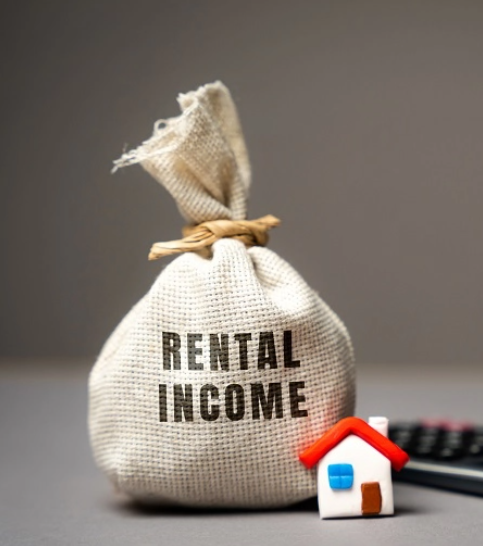If you’re a landlord, you’re likely familiar with the fact that rental income is taxable. However, many landlords may be paying more tax than necessary because they’re unaware of the various deductions and reliefs available to them. By making smart real estate investment choices and understanding the tax breaks you qualify for, you can reduce your overall tax liability. This article provides practical tips and strategies for landlords on how to lower the tax on rental income and effectively manage rental property finances.
Recent Tax Changes Impacting Landlords [2024/25]
In the past, mortgage interest payments were fully deductible from rental income, which reduced your taxable profits. However, recent tax reforms have changed this. Since April 6, 2017, mortgage interest can no longer be fully deducted, and now you receive a tax credit based on the basic income tax rate (currently 20% for 2024-2025). This change primarily affects higher-rate taxpayers, as the relief on mortgage interest is now capped at the basic rate. This new system was fully implemented by April 2020, making it important for landlords to understand these changes when calculating their tax obligations.
How to Reduce Tax on Rental Income
One of the best ways to reduce the tax burden on your rental income is by claiming all allowable expenses. These expenses are the costs associated with managing and maintaining your rental properties, which you can subtract from your rental income to reduce your taxable profit.
Common Deductible Expenses
Here are some of the most common deductible expenses that landlords can claim:
- Property Maintenance and Repairs: Costs related to keeping the property in good condition, such as fixing leaks or replacing worn-out parts, are deductible. However, major renovations or improvements may be treated as capital expenses.
- Property Management Fees: If you hire a letting agent to manage your property, their fees are tax-deductible.
- Insurance Premiums: You can claim the cost of insurance premiums, including building insurance, contents insurance (if your property is furnished), and public liability insurance.
- Utility Bills: If you pay utility bills (electricity, gas, water) for your tenants, these are also deductible.
- Council Tax: If you, as the landlord, are responsible for the council tax, you can deduct this from your taxable income.
- Legal and Accounting Fees: Fees for professional services such as legal advice, tenancy agreements, or tax preparation are tax-deductible.
- Advertising Costs: The cost of advertising your rental property, such as online listings or printed ads, is also deductible.
Additional Reliefs and Allowances
In addition to direct expenses, there are specific reliefs and allowances that can further reduce your tax bill:
- Replacement of Domestic Items Relief: If you replace items like furniture, white goods, or carpets, you can claim tax relief for the cost. However, only like-for-like replacements qualify, not improvements.
- Home Office Expenses: If you manage your rental business from home, you can claim a portion of your household expenses (e.g., electricity, broadband) as a deduction.
- Property Income Allowance: If your rental income is £1,000 or less in a tax year, you don’t have to pay tax on it. If it exceeds £1,000, you can still claim this allowance instead of actual expenses if your expenses are low.
Apportioning Expenses
In some cases, you may need to divide certain expenses between your personal use and your rental business. For example:
- Renting Out Part of Your Home: If you rent a room in your main residence, you can apportion expenses like utility bills, council tax, and mortgage interest.
- Holiday Lettings: If you rent out a property as a holiday let but also use it for personal holidays, you’ll need to apportion costs based on how much it’s rented out versus used personally.
Strategic Tax Planning for Landlords
Reducing taxes on rental income isn’t just about claiming deductions. To optimize your tax position, strategic planning is essential. Here are some methods landlords can use to minimize their tax liability:
- Optimize Your Tax Bands: Your rental income is added to your other income (e.g., salary, pension) to determine your overall tax liability. To keep your income within a lower tax band, consider timing your income and expenses wisely.
- Joint Ownership: Owning property jointly with a spouse or civil partner can reduce your combined tax liability. This is especially useful if one partner is in a lower tax band.
- Limited Company Ownership: For landlords with multiple properties, setting up a limited company can be a tax-efficient strategy. Corporation tax rates (19% or 25%) may be lower than personal tax rates, and there’s flexibility in how you withdraw profits.
Managing Income and Losses
Effective tax planning involves managing your rental income and expenses throughout the year. For example, if you expect a spike in rental income due to a rent increase, consider bringing forward expenses such as repairs or upgrades into the same tax year to offset the higher income. Similarly, if you anticipate a leaner year, consider delaying expenses to align with lower income periods.
Private Residence Relief (PRR)
Private Residence Relief can help reduce capital gains tax when selling a property that was once your main home. If you lived in the property for any period, the gains made during that time are exempt from tax. Additionally, the final 9 months of ownership are also exempt, even if the property was rented out during that time.
Conclusion
Managing tax on rental income effectively is crucial for landlords looking to reduce their tax bill and maximize profitability. By understanding allowable expenses, claiming reliefs and allowances, and implementing strategic tax planning, landlords can minimize their tax liabilities and keep more of their rental income. Regularly reviewing your rental business finances and staying up to date on tax changes will help you remain tax-efficient and compliant.



